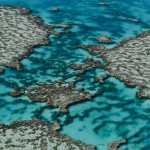The Cora Project
Story:
Found in a tree deep in the Brazilian Amazon as a baby, Cora’s story is an interactive  tale that intertwines reality and fiction, and weaves fantasy and adventure around the life of a young woman obsessed with fashion and birds.
tale that intertwines reality and fiction, and weaves fantasy and adventure around the life of a young woman obsessed with fashion and birds.
The Cora Project, with all of its story-centered and data-centered transmedia elements set against a backdrop of ecological threats to humans and birds alike, has two important goals:
- Inspiring young women to find their own bird (identity), own fashion, and own voice;
- And helping to create a global market for eco-fashion.
xOcean Café’s role:
Lead production; executive production; content, project and financial strategy.
We’re working together with the Cora team to develop a global franchise. The Cora Project combines storytelling and the development of non-fiction apps. Brands, apps development, storytelling across multiple platforms, live events, games, partnerships… xOcean Café is integrating all of these elements with an eye toward revenue-positive global distribution. We’re developing both content and project strategies that are suited to regional markets in the Americas, Europe and Asia.
Partners:
The In.Visible Continent, Translimit Storytelling, Alison Norrington of Story Central, and Sam Stamp of Mission Media.
Previous projects:
Untitled Oceania documentary
Story:
An island nation in the South Pacific has an antiquated power structure –  leftovers from clonial powers who had little interest in suiting infrastructure to the local landscape and culture. Petroleum is being transported from the US to run untended metal generators that are being eaten away by a bacteria on the island. Homes have as little as one hour of electricity per evening. This island nation needs a new power infrastructure.
leftovers from clonial powers who had little interest in suiting infrastructure to the local landscape and culture. Petroleum is being transported from the US to run untended metal generators that are being eaten away by a bacteria on the island. Homes have as little as one hour of electricity per evening. This island nation needs a new power infrastructure.
Meanwhile, Kiribati, a neighboring island nation to the southeast has had to make a wrenching decision – climate change and sea level rise will make the islands uninhabitable soon and completely underwater within 30 years – and so the entire island nation has contracted with Fiji to sell them land and let them create a ‘reservation’ of Kiribati culture a piece of Fiji’s Vanua Levu island.
What should the island nation do? How do they choose a power infrastructure that can withstand the island’s metal-eating bacteria? How do they address their cultural antipathy toward maintenance? Should they embrace technologies that don’t contribute to climate change and sea-level rise? And what about the cost?
xOcean Café’s role:
Executive and transmedia production.
Partner:
Romano Film and Photography http://urobertoromano.com
